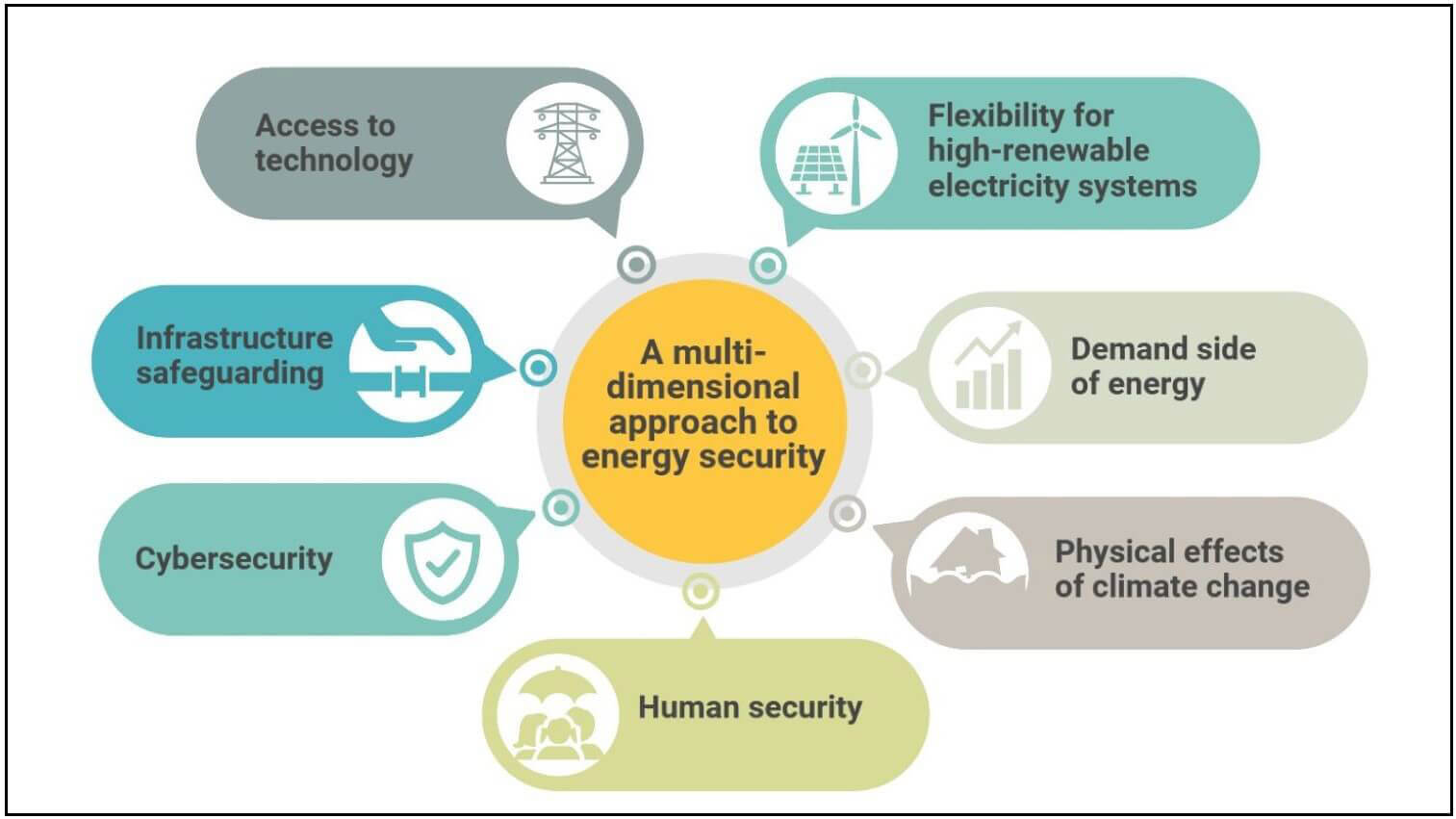UPDATED 1 Sept: The EI library in London is temporarily closed to the public, as a precautionary measure in light of the ongoing COVID-19 situation. The Knowledge Service will still be answering email queries via email , or via live chats during working hours (09:15-17:00 GMT). Our e-library is always open for members here: eLibrary , for full-text access to over 200 e-books and millions of articles. Thank you for your patience.
New Energy World™
New Energy World™ embraces the whole energy industry as it connects and converges to address the decarbonisation challenge. It covers progress being made across the industry, from the dynamics under way to reduce emissions in oil and gas, through improvements to the efficiency of energy conversion and use, to cutting-edge initiatives in renewable and low-carbon technologies.
Energy security concept needs to evolve in the renewables era, says IRENA
24/4/2024
News
The transition away from fossil fuels to renewables requires a new interpretation of the concept of energy security, according to a new report by the International Renewable Energy Agency (IRENA).
The report outlines a wide-ranging energy security concept for the 21st century, noting that the systemic nature of the energy transition requires a holistic approach that encompasses technology and its value chains, system flexibility, climate change effects, energy demand, and human security, among other issues.
IRENA Director-General, Francesco La Camera, says: ‘The energy system is undergoing a profound transformation, and renewables are bound to bring greater resilience through decentralisation and greater reliance on domestic sources. It is vital to proactively shape this resilience with foresighted policies and investments. While lessons from the fossil fuel era can inform some aspects of the transition, a holistic approach that considers the unique attributes of renewables and modernises economic, social, and diplomatic strategies is necessary.’
The report points out that in 2022, 86% of the global population lived in countries that were net importers of fossil fuels. The shift to renewables from local sources, which is possible for all countries, it says, will boost self-sufficiency, shifting energy dependencies from global to regional level and making most countries less susceptible to geopolitical disruptions.
He continues: ‘Technologies, not fuels, are the centrepiece of the new energy system. By revisiting traditional security approaches and identifying emerging factors, this report seeks to equip policy makers with a better understanding of energy security in the era of renewables.’
That means, for example, that critical materials, as key inputs to energy technology manufacturing, require attention in the short- to medium-term due to the high concentration of their supply chains. Diverse and resilient supply chains are essential for the energy transition, states the report.
It adds that, since no country masters every aspect of clean technologies, it is essential to consider the impact of domestic policies within a broader web of interdependence. A renewables-dominated future will see energy security focus shift to trade in technologies or semi-finished products. However, the pattern of technology dependency in that system will be vastly different from what it has been in the fossil fuel-dependent world. For instance, most jobs in solar photovoltaics are ‘downstream’, as more workers install solar panels than build them.
Under IRENA’s World Energy Transitions Outlook, renewables would comprise three-quarters of the global energy mix by 2050. Electricity would become the main energy carrier, meeting more than 50% of consumption by 2050. The renewables-based system is characterised by high electrification and efficiency. As a result of the change in energy, major geopolitical shifts are set to profoundly influence energy trade dynamics, alter international dependencies and reshape the geopolitical landscape. Cross-border trade in electricity will rise in prominence, fostering mutual benefits, in contrast to the asymmetric dependencies of the oil and gas sector.
IRENA’s new report indicates that energy security in a renewables-based era will need to evolve in several key areas. It states that resilient technology supply chains will be vital to support the transition, for both developed and developing countries. Furthermore, security and political considerations will hold the key to the successful deployment of the infrastructure required to support flexible renewables-based energy systems.

Fig 1: Dimensions of energy security in a renewables-dominated world
Source: IRENA
